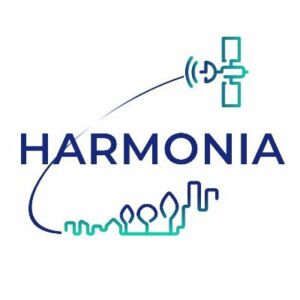HARMONIA
KTH Royal Institute of Technology in Stockholm is Sweden’s largest technical research and learning institution and a European technical and engineering university. The Division of Geoinformatics at the Department for Urban Planning and Environment is responsible for research and education within geographical information technology (GeoIT)

Overview of the project

To address the current lack of a dedicated process of understanding and quantifying climate change effects on urban areas, HARMONIA leverages existing tools, services, and novel technologies to deliver an integrated resilience assessment platform using Satellite and auxiliary data available on GEOSS, DIAS, urban TEP, etc. platforms. HARMONIA explores modern Remote Sensing tools and 3D-4D monitoring, Machine Learning/Deep Learning techniques and develops a modular scalable data-driven multi-layer urban areas observation information knowledge base, using Satellite data time series, spatial information, and auxiliary data, in-situ observing systems, which will integrate detailed information on the local level of neighborhoods/building blocks. HARMONIA focuses on two pillars: a) Natural and manmade hazards intensified by climate change: urban flooding, soil degradation, and geo-hazards (landslides, earthquake, ground deformation) and b) Manmade hazards: heat islands, urban heat fluxes, Air Quality, Gas emissions. Paying extra attention to Sustainable Urban Development, one of the Societal Benefit Areas posits that the use of EO is a crucial tool for resilient cities and the assessment of urban footprints, to promote equity, welfare and shared prosperity for all, feed new indicators for the monitoring of progress towards the Sustainable Development Goals in an EU context.
The HARMONIA project aims to develop a decision support system for improved urban resilience and sustainability to cope with climate change and extreme events.
Ongoing research
06/01/2021 - 01/31/2025
By utilizing multi-source satellite imagery, our deep learning model delineated built-up area accurately across all four pilot cities. The urban change detection model also effectively combined Sentinel-1 SAR and Sentinel-2 MSI data and achieved good performance and built-up area changes in the pilot cities were accurately detected. Using Urban Atlas urban green classes as lables, urban green space were mapped from Sentinel-2 data across the pilot cities. Finally urban green changes were detected using post-classification comparison.
To add effective risk assessment, urban heat fluxes were quantified using EO and meteorological data to assess the spatial-temporal heat conditions in cities. Analysis on humidity and temperature was conducted to identify risks associated with dry conditions, including urban wildfires. Adapting exsiting flood models, flood scenarios were simulated to address severe issue of urban flash flooding in Milan. The HARMONIA Integrated Resilience Assessment Platform (IRAP) is designed advanced data integration, risk assessment, and decision support, aimed at enhancing urban resilience.
EU Horizon 2020 research and innovation programme
organisation
Founded in 1827, KTH Royal Institute of Technology in Stockholm is Sweden’s largest technical research and learning institution and a European technical and engineering university. The Division of Geoinformatics at the Department for Urban Planning and Environment is responsible for research and education within geographical information technology (GeoIT). Geoinformatics or GeoIT is the science and technology for collecting, managing, visualizing, analyzing, mining, and presenting geospatial data. The research at the Division of Geoinformatics is focused on Earth observation and geospatial big data analytics and their applications in sustainable and resilient urban planning, mobility pattern mining, environmental change monitoring, and disaster management.
POLITECNICO DI MILANO, INSTITUTE OF COMMUNICATION AND COMPUTER SYSTEMS, RESILIENCE GUARD GMBH, GEOSYSTEMS HELLAS IT KAI EFARMOGESGEOPLIROFORIAKON SYSTIMATON ANONIMIETAIREIA, CREOTECH INSTRUMENTS SPOLKA AKCYJNA, UNIVERSITATEA DE VEST DIN TIMISOARA, ISTITUTO NAZIONALE DI GEOFISICA E VULCANOLOGIA, IDRYMA TECHNOLOGIAS KAI EREVNAS, URBASOFIA SRL, AGENCY FOR SUSTAINABLE DEVELOPMENT AND EUROINTEGRATION – ECOREGIONS, ILMATIETEEN LAITOS, ASSIMILA LTD, EUROPEAN ASSOCIATION OF REMOTE SENSING COMPANIES, HUMANITAS MIRASOLE SPA, EURONET CONSULTING, Commune d’Ixelles, COMUNE DI MILANO, STOLICHNA OBSHTINA, DIMOS PEIRAIA, DataReady Limited

